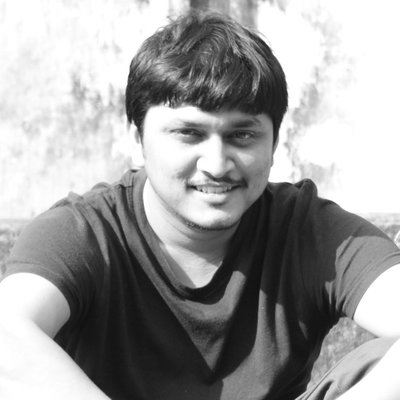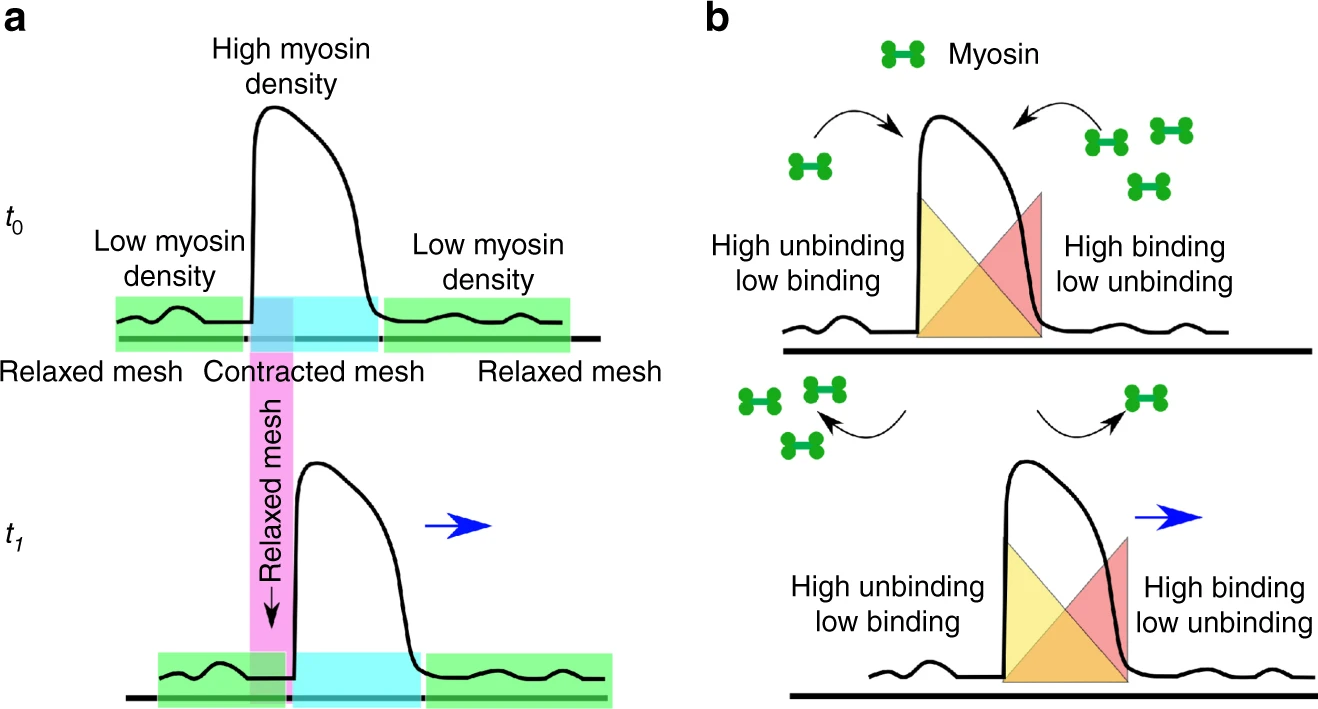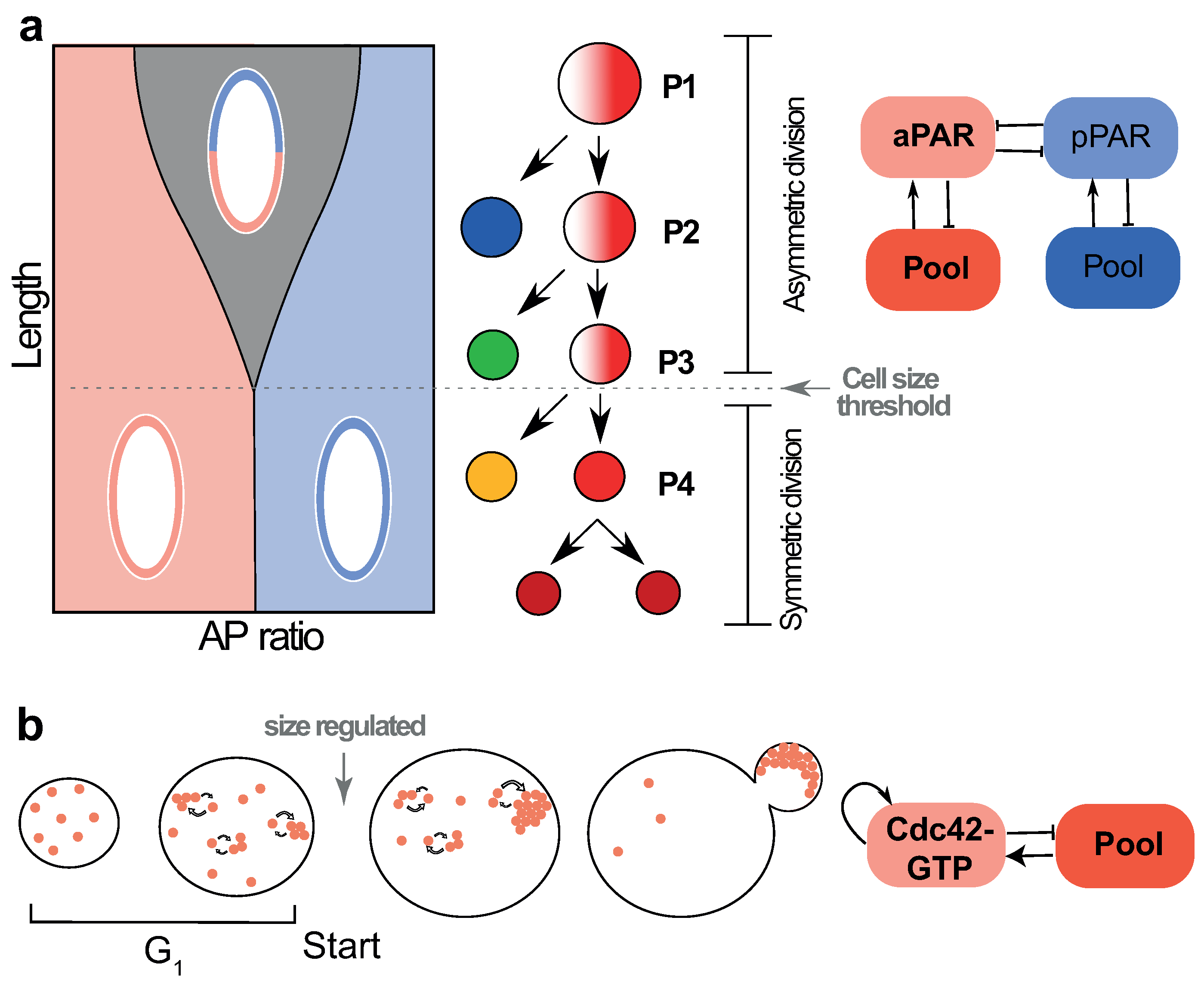Deb Sankar Banerjee

Currently, I am a postdoctoral fellow at the James Franck Institute at The University of Chicago working with Prof. Suri Vaikuntanathan. My primary research interests lie in understanding the physical principles that drive the complex and rich dynamics seen in living matter systems. My current research activities are mainly focused on understanding how physical learning leads to mechanochemical adaptation at a cellular or tissue level, studying the formation and size regulation of intracellular structures (e.g., filaments, networks, organelles, condensates etc), and studying the collective dynamics and self-organization of active elements (e.g., growing filaments, contractile actomyosin network, cell junction etc) seen across the scales from the sub-cellular cytoskeleton to supra-cellular structures and tissues. I employ various analytical and computational methods ranging from coarse-grained active hydrodynamic description to stochastic reaction network and microscopic molecular dynamics simulations, to model and
study biological systems.
My Research
Cytoskeletal dynamics across scales:
I apply concepts from cell biology, mechanobiology and soft-condensed matter physics to understand how local actomyosin forces are organized and orchestrated from sub-cellular to supra-cellular scales to create complex (tissue) shapes and dynamics. The broader goal of my research in this direction is to understand the dynamics of the elementary organizations of the actomyosin machinery (e.g., subcellular cortex, cellular junction etc) and to uncover the cross-talk between such organizations that drive the tissue remodelling.
 Possible mechanisms for the movement of actomyosin-dense structures in an active affine elastomer. Check out the work here
Possible mechanisms for the movement of actomyosin-dense structures in an active affine elastomer. Check out the work here
Self-organization of intracellular structures:
I combine ideas from statistical mechanics, cell biology and systems biology to study the design principles employed in dynamic self-organization and size-regulation of various organelles and intracellular structures. I have used chemical master equations and stochastic reaction networks and hydrodynamics to describe the problems of self-organization.

Size-regulated symmetry breaking in single cells. Check out the work here
Physical learning in biological systems:
Traditionally, learning has been studied in neuroscience to understand how the assembly of neurons and modifications of synaptic transmission between them (i.e., synaptic plasticity) facilitates learning in the brain. On the other hand, learning in physical systems is an emerging field of study in material science and engineering, where physical systems, without neurons, can adapt their interactions autonomously based on local responses in the presence of a stimulus to acquire functionality or a desired response. Living matter systems are dynamically self-organized with non-equilibrium forces and continual turnover of their components, and my studies aim to understand how such remodelling processes and active forces influence (facilitate or suppress) physical learning in the context of cytoskeletal dynamics and tissue morphogenesis.
My Publications
Key Publications:
- Actomyosin pulsation and flows in an active elastomer with turnover and network remodelling,
Nat. Commun. 8, 1121 (2017)
Deb S Banerjee, Akankshi Munjal, Thomas Lecuit and Madan Rao. - Size regulation of multiple organelles competing for a limiting subunit pool,
PLoS Comput Biol 18, (6) (2022)
Deb S Banerjee, Shiladitya Banerjee. - Catalytic growth in a shared enzyme pool ensures robust control of centrosome size,
eLife 12, (RP92203) (2023)
Deb S Banerjee, Shiladitya Banerjee. - Interplay of condensate material properties and chromatin heterogeneity governs nuclear condensate ripening,
In review, (2023)
Deb S Banerjee, Tafadzwa Chigumira, Rachel M Lackner, Josiah C Kratz, David M Chenoweth, Shiladitya Banerjee, Huaiying Zhang.
See all my publications in the Google Scholar page
Contact
CGIS Room: 145
James Franck Institute
The Univerity of Chicago
Chicago, IL 60637
United States
Email: dsbanerjee@uchicago.edu
Email: debsankar1988@gmail.com
Find me on Twitter
Find me on Blusky
ORCiD